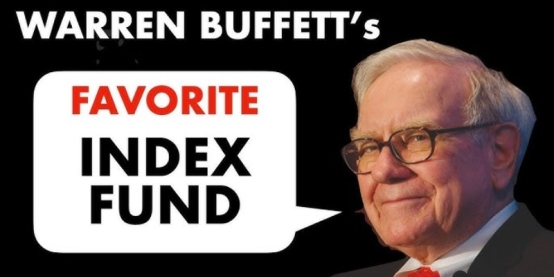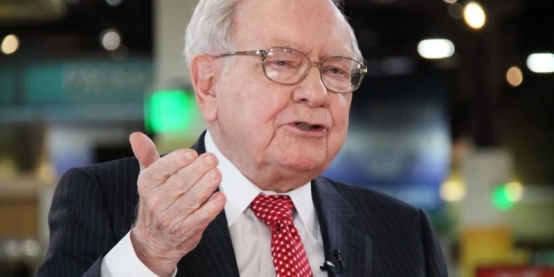Why Warren Buffett Recommends Index Funds
Many investors seek a shortcut to substantial wealth. They chase hot stocks, trade all day, and hope for quick profits. But one of the wealthiest men in the world, Warren Buffett, does not teach people to do that. Instead, Buffett often talks about something many people overlook — index funds.
Buffett, known as the "Oracle of Omaha," has amassed a fortune by making informed investment choices. Yet, when asked how the average person should invest, he often gives the same answer: low-cost index funds. This idea may sound boring to those who dream of picking the next Apple or Tesla, but there are good reasons why Buffett believes in this approach.
Simple but Powerful
Index funds are easy to understand. They are like baskets that hold a piece of every company in an entire market, such as the S&P 500. If the market rises, the value of the fund also increases. If it goes down, the fund drops as well. There is no guessing which company will win or lose.

Buffett once said that when he is gone, he wants 90% of the money he leaves behind to be invested in a low-cost S&P 500 index fund. He believes this will do better than most other plans people have. In his words, "By periodically investing in an index fund, the know-nothing investor can outperform most investment professionals."
For individuals who lack the time to study stocks or markets, index funds provide a way to grow wealth without the Stress of constant trading.
Low Fees Mean More Money
One significant reason Buffett favours index funds is their lower cost. Many people invest a considerable amount of money with fund managers who promise to outperform the market. However, research shows that most of them fail to do so over extended periods. These managers charge high fees whether they win or lose.
Index funds do not require expensive managers to pick stocks. They follow the market. So the fees are very low. Lower costs mean more money stays in the investor's pocket. Over time, that small saving can turn into thousands of extra dollars.
A report from the Securities and Exchange Commission reveals that fees consume returns more than many people realise. Choosing an index fund instead of an expensive managed fund can help protect savings from unnecessary costs.
Beating Most Pros
Many investors believe they can outperform the market by selecting stocks or timing their purchases and sales. But study after study proves otherwise. Even professional fund managers often lose to the simple index fund.
Buffett has run a real-world test of this. In 2007, he made a bet that a low-cost S&P 500 index fund would do better than a group of hedge funds over ten years. He was right. After ten years, the index fund won by a wide margin.

This test confirms what research has been saying for years. Trying to beat the market is complex and expensive. Following the market is easier and cheaper.
Diversification Without Stress
Another reason Buffett likes index funds is that they spread out risk. A single company can fail. A single industry can have a bad year. However, an index fund owns shares in hundreds of companies across various industries. If one company fails, others may thrive.
This broad mix makes index funds less risky than investing in a single stock. They protect investors from losing everything due to negative news from a single company.
Diversification is a key reason why financial planners and experts often back index funds for retirement savings and other long-term goals. The Financial Industry Regulatory Authority notes that diversification is a smart way to lower risk while staying invested in the market.
Time and Compound Growth
Index funds also reward patience. The longer money stays in, the better the chance to earn more through compound growth. This occurs when earnings generate additional earnings over time.
Buffett knows this well. He often says that time in the market is more important than timing the market. With index funds, investors do not have to guess when to buy or sell. They can regularly add money and let it grow.
Safe Bet for Retirement
For most people, retirement is the biggest goal for saving and investing. Index funds can play a strong role here. They can be invested in various retirement accounts, including IRAs and 401(k)s. They grow steadily with the market and do not need constant watching.
Many employers offer index funds in retirement plans because they are low-cost and proven to perform well over time. This helps workers build wealth without needing to become financial experts.
The U.S. Department of Labour explains that choosing low-cost funds in retirement accounts helps people keep more of their money for the future.

Avoiding the Hype
One hidden lesson from Buffett's advice is that big promises and hype do not always yield the desired results. There will always be people selling "the next big thing." However, most do not deliver on their promises.
Buffett’s idea is different. He believes the boring path works best for most people. This means ignoring headlines, not chasing hot tips, and staying the course.
An index fund is not exciting in the short term. But over the years or decades, it can build wealth slowly and safely.
Takeaway: Keep It Simple
Warren Buffett's message is clear. For individuals seeking to grow their savings without the Stress and high costs associated with stock picking, index funds are a wise choice. They are simple, inexpensive, and proven to outperform most other investment methods.
Not everyone will become a billionaire like Buffett. However, by following his advice on index funds, regular people can grow their money over time, avoid significant mistakes, and stay prepared for the future.







